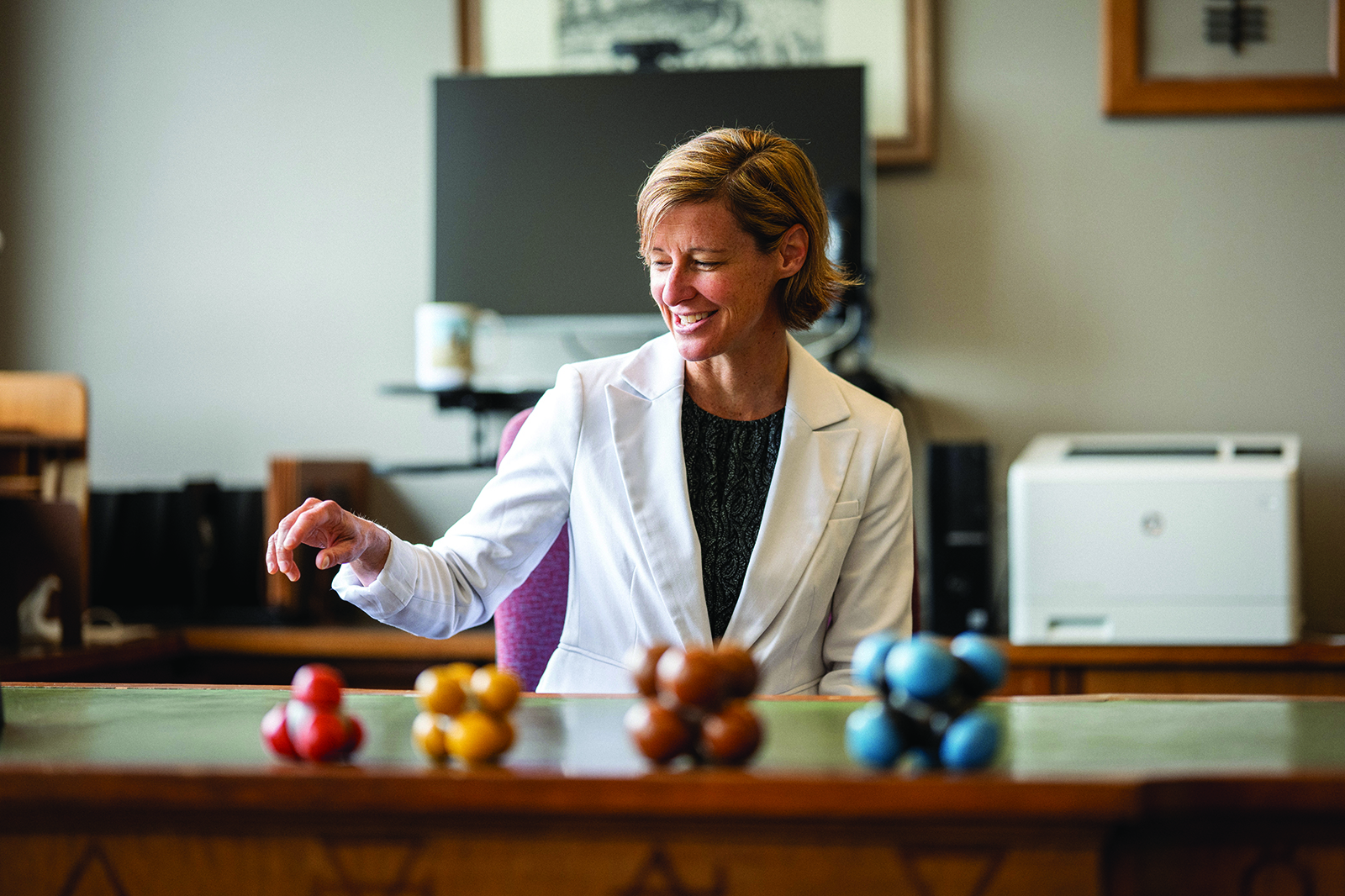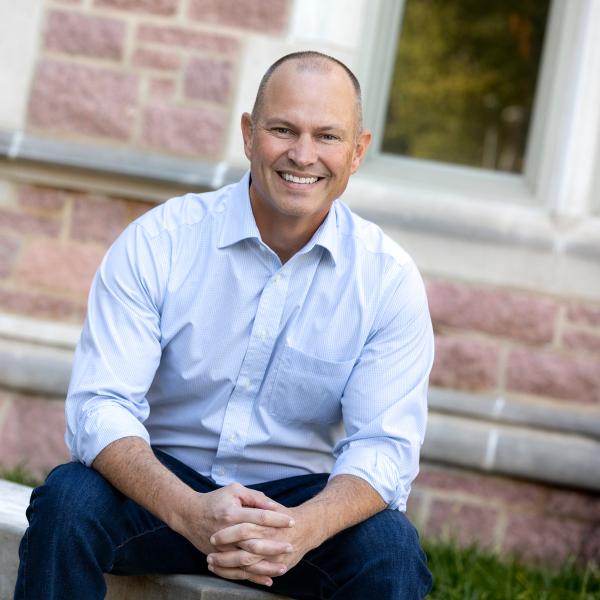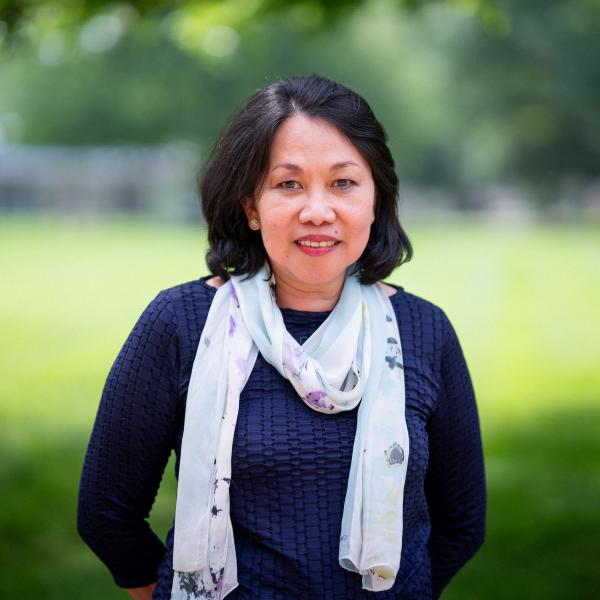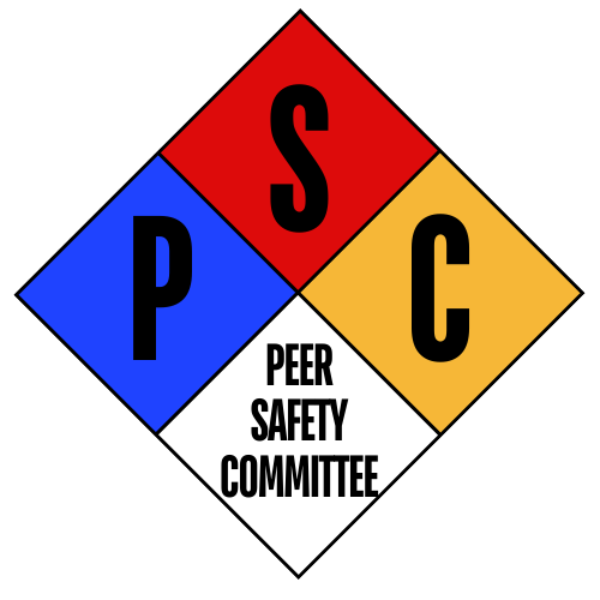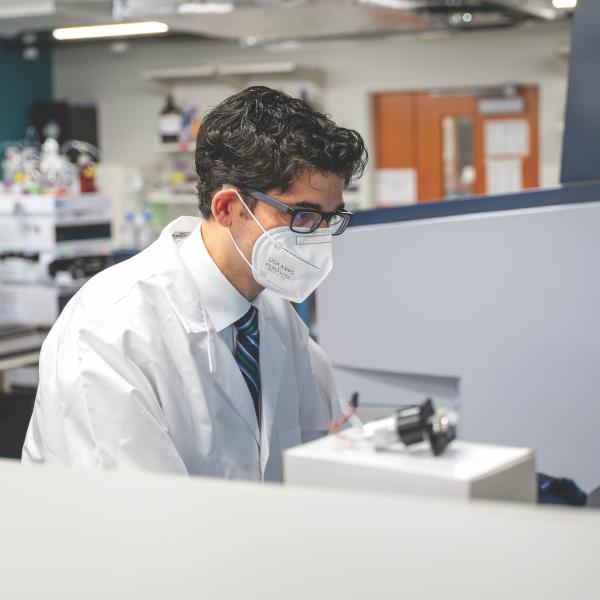The new chair of the Department of Chemistry envisions a future for the department that’s “all about people.”
Following a nationwide search, Jennifer Heemstra took the helm of the Department of Chemistry in July. Heemstra is a highly regarded researcher whose work focuses on harnessing properties of nucleic acids for applications in biosensing and bioimaging. She has received numerous awards and honors, including a 2021 Rising Star Award from the American Chemical Society. As the new Charles Allen Thomas Professor of Chemistry and department chair, Heemstra envisions a future for chemistry at Washington University that is “all about people.”
What drew you to Washington University?
This is a department and a university that I’ve always held in extremely high regard. I was really excited when I first learned about the opportunity to move to WashU, but it was my interview that completely sold me on it.
I felt more energy here than I had in years because, as I looked around at the department and thought about what I would want to do as chair, I realized that the Arts & Sciences leadership and faculty wanted to see exactly the same things happen in the department that I did. My interview was basically two days of nonstop problem-solving and talking about what could be possible, thinking about how we could advance the department, and considering what new approaches we might try.
With the phenomenal faculty, staff, students, and postdocs we have here, it was just immediately apparent to me that amazing things could be achieved, and it is my privilege to now be here leading the department toward that vision. Every time I’m on campus, I feel a sense of excitement well up in me. It’s incredible.
What is your vision for the future of WashU chemistry?
My big vision is to create a place where everyone has the environment and resources they need to be their best. If every individual can walk into work each day and think, “Yes, I belong here, and I am supported and valued here. This place makes me want to be creative and driven and run after big goals and pursue excellence today,” then that is how we will all collectively advance. When you feel like you belong, it builds your confidence and it builds your energy, and then that fuels success.
We can achieve this by intentionally recruiting people who are outstanding educators and outstanding researchers and who care deeply about building an inclusive community and being kind and supportive to all of the people they work with. For example, when we recruit faculty, many people get focused solely on research achievements, but you realize as a leader that it’s the ability to work cohesively as a team that’s going to create true excellence. We have a great foundation for that here, and we can continue building on it.
"When you feel like you belong, it builds your confidence and it builds your energy, and then that fuels success."
It’s really all about people. Broadly, we want to keep being outstanding in undergraduate and graduate education and to continue building our research excellence by improving infrastructure, recruiting outstanding faculty, empowering students to pursue new ideas, and developing collaborations between groups across the Danforth and medical campuses. All of that is done through people.
What do you love about being a chemist?
I got into this job because I love chemistry and I love building things. As an undergraduate, I fell in love with a subfield called supramolecular chemistry, where we essentially build complex architectures at the molecular level. The idea of building with molecules is what drew me to a chemistry major, and what convinced me to go to graduate school, and what kept me going into a postdoc, and what made me want to become a faculty member.
Once I became a faculty member, I realized that, while I thought I had just a science job, I also have a people job. That was an immensely exciting thing to discover. My happiest moments are when I’m meeting with my lab members and we’re talking through a research problem or “blue sky” brainstorming about all the projects we’re going to do. I love seeing the ideas they generate, working through issues and finding solutions until, all of a sudden, we have this really cool idea that we’re all excited to pursue. That process is really what makes science fun for me.
What advice do you have for young scientists?
Find great mentors. And realize that we never outgrow the need for mentoring. You don’t always have a choice in who your mentors will be because sometimes you’re just following where the opportunities lead you. But, to the extent that it’s up to you, choose to work with people who do great science and, even more importantly, who are going to support you and be rooting for your success and leveraging their power and privilege to help you advance your career. For graduate students in particular, a research project may last for a few years, but if you choose great mentors, then they’re going to be mentors for life.
We can tend to think that we are mentored early in our career and then we become mentors and no longer need mentoring from others. But that couldn’t be further from the truth. The more I’ve advanced in my career, the more I need my mentors, and that has become especially clear to me in the last few months as I’ve taken on this new leadership role. As the challenges I confront on a daily basis get more complex and the stakes get higher, the more I lean on mentors to share their wisdom and give me advice so that I can do my best for the people around me.

